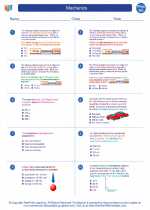Paleontology
Paleontology is the scientific study of the history of life on Earth as based on fossils. It involves the analysis of plant and animal fossils, including those of microscopic size, as well as the study of the environment in which the organisms lived. The field of paleontology combines principles and techniques from geology, biology, and anthropology to reconstruct the Earth's history and understand the evolution of life.
Key Concepts in Paleontology
- Fossils: These are the preserved remains or traces of ancient organisms. Fossils can include bones, shells, imprints, and other evidence of past life.
- Evolution: Paleontology provides crucial evidence for the theory of evolution by studying the changes in organisms over time through the fossil record.
- Stratigraphy: The study of rock layers and the layering of rocks to understand the chronological order of events in Earth's history.
- Paleoecology: The study of ancient ecosystems and the interactions between organisms and their environment.
- Taphonomy: The study of what happens to an organism from the time of death to the time of discovery as a fossil, including decay, burial, and fossilization processes.
Skills and Methods in Paleontology
To be successful in paleontology, individuals need to develop a range of skills and be familiar with various methods, including:
- Fossil identification and classification: Understanding the characteristics of different types of fossils and categorizing them into groups based on their features.
- Fieldwork: Conducting field expeditions to search for and collect fossils in various geological formations.
- Laboratory analysis: Using tools and techniques such as microscopy, chemical analysis, and imaging to study fossils and their surrounding sediment.
- Geological mapping: Understanding the geological context of fossil sites through mapping and stratigraphic analysis.
- Statistical analysis: Applying statistical methods to analyze paleontological data and draw inferences about past life and environments.
Career Opportunities in Paleontology
Individuals interested in pursuing a career in paleontology can explore various paths, including:
- Academic research: Working in universities, museums, or research institutions to conduct original research and contribute to the understanding of Earth's history.
- Curation and museum work: Managing fossil collections, creating exhibits, and educating the public about paleontology in museums and cultural institutions.
- Consulting and environmental assessment: Applying paleontological knowledge to assess the impact of human activities on fossil resources and the environment.
- Science communication: Engaging in science outreach and education to share the excitement of paleontology with the public through writing, media, and public speaking.
Study Resources for Paleontology
Here are some recommended resources for learning more about paleontology:
- Books:
- "Introduction to Paleobiology and the Fossil Record" by Michael J. Benton
- "Principles of Paleontology" by David R. Prothero and Richard H. Dott Jr.
- Online Courses:
- "Paleontology: The Big Dig" offered by the University of Alberta on Coursera
- "Dino 101: Dinosaur Paleobiology" offered by the University of Alberta on Coursera
- Professional Organizations:
- Paleontological Society
- The Geological Society of America
◂Physics Worksheets and Study Guides High School. Mechanics
The resources above cover the following skills:
Core Ideas for Knowing Science
Physical Science
Changing the movement of an object requires a net force to be acting on it.



